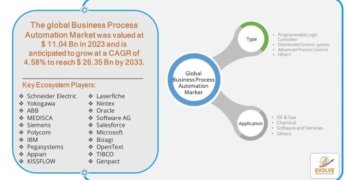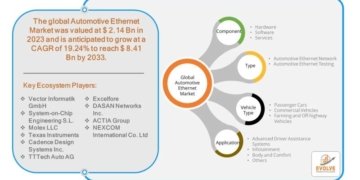Market Overview:
The SCADA market is experiencing rapid growth, driven by increasing demand for industrial automation, advancements in iot and connectivity technologies, and growing emphasis on cybersecurity. According to IMARC Group’s latest research publication, ” SCADA Market Size, Share, Trends and Forecast by Component, Architecture, End-User, and Region 2025-2033″, the global SCADA market size was valued at USD 21.9 Billion in 2024. Looking forward, IMARC Group estimates the market to reach USD 31.3 Billion by 2033, exhibiting a CAGR of 3.98% from 2025-2033.
This detailed analysis primarily encompasses industry size, business trends, market share, key growth factors, and regional forecasts. The report offers a comprehensive overview and integrates research findings, market assessments, and data from different sources. It also includes pivotal market dynamics like drivers and challenges, while also highlighting growth opportunities, financial insights, technological improvements, emerging trends, and innovations. Besides this, the report provides regional market evaluation, along with a competitive landscape analysis.
Grab a sample PDF of this report: https://www.imarcgroup.com/scada-market/requestsample
Our report includes:
● Market Dynamics
● Market Trends and Market Outlook
● Competitive Analysis
● Industry Segmentation
● Strategic Recommendations
Growth Factors in the SCADA Market
● Increasing Demand for Industrial Automation
The rising need for industrial automation across various sectors is a significant driver for the SCADA (Supervisory Control and Data Acquisition) market. Industries such as manufacturing, oil and gas, and utilities are adopting SCADA systems to streamline operations, enhance efficiency, and reduce human error. For instance, in the manufacturing sector, companies like General Electric have implemented SCADA systems to monitor and control assembly lines, ensuring real-time data collection and process optimization. This automation trend is fueled by the need to remain competitive in a global market, where precision and speed are critical. SCADA systems provide centralized control, enabling operators to make informed decisions quickly, which boosts productivity and reduces downtime. As industries continue to embrace smart factories and Industry 4.0 principles, the demand for SCADA systems is expected to grow steadily.
● Advancements in IoT and Connectivity Technologies
The integration of Internet of Things (IoT) technologies with SCADA systems is a pivotal growth factor. IoT enables seamless connectivity between devices, allowing SCADA systems to collect and analyze vast amounts of data from sensors and equipment. For example, in the water management industry, utilities like Thames Water in the UK use IoT-enabled SCADA systems to monitor water distribution networks, detecting leaks and optimizing resource usage in real time. Enhanced connectivity through 5G and cloud-based platforms further improves data transmission speeds and system scalability. These advancements allow SCADA systems to support remote monitoring and predictive maintenance, reducing operational costs and improving system reliability, thus driving market expansion.
● Growing Emphasis on Cybersecurity
As SCADA systems become more interconnected, the need for robust cybersecurity measures is propelling market growth. Industries are investing heavily in securing their SCADA infrastructure to protect against cyber threats that could disrupt critical operations. A notable case is the 2021 Colonial Pipeline cyberattack, which highlighted the vulnerabilities of industrial control systems and spurred investments in advanced security protocols for SCADA systems. Vendors are now incorporating features like encryption, multi-factor authentication, and intrusion detection to safeguard data and operations. This focus on cybersecurity not only ensures operational continuity but also builds trust among end-users, encouraging wider adoption of SCADA systems across sectors like energy and transportation.
Key Trends in the SCADA Market
● Shift Toward Cloud-Based SCADA Solutions
The transition to cloud-based SCADA systems is a prominent trend reshaping the market. Unlike traditional on-premises systems, cloud-based SCADA offers greater flexibility, scalability, and cost-efficiency. For instance, Schneider Electric’s EcoStruxure platform leverages cloud technology to provide real-time insights into energy management for industrial clients. Cloud-based systems allow businesses to access data remotely, integrate with other digital tools, and scale operations without significant hardware investments. This trend is particularly appealing to small and medium-sized enterprises that seek affordable yet robust monitoring solutions. As cloud adoption accelerates, vendors are focusing on developing user-friendly interfaces and ensuring data security to meet diverse industry needs.
● Integration of Artificial Intelligence and Machine Learning
The incorporation of artificial intelligence (AI) and machine learning (ML) into SCADA systems is revolutionizing data analysis and decision-making. AI-powered SCADA systems can predict equipment failures, optimize processes, and enhance operational efficiency. A practical example is Siemens’ use of AI in its SCADA systems for wind farms, where machine learning algorithms analyze turbine performance data to predict maintenance needs, reducing downtime by up to 20%. These technologies enable proactive decision-making by identifying patterns and anomalies in real time. As industries strive for predictive maintenance and data-driven strategies, the integration of AI and ML into SCADA systems is becoming a critical trend, driving innovation and competitiveness.
● Focus on Interoperability and Open Standards
The push for interoperability and open standards is transforming the SCADA market, enabling seamless integration with diverse systems and devices. Open protocols like OPC UA and MQTT allow SCADA systems to communicate with equipment from different manufacturers, fostering flexibility and reducing vendor lock-in. For example, Rockwell Automation’s FactoryTalk platform supports open standards, enabling automotive manufacturers to integrate SCADA with existing ERP and IoT systems for streamlined operations. This trend is particularly significant in industries with heterogeneous equipment, such as oil and gas, where interoperability ensures efficient data exchange. As standardization gains traction, SCADA vendors are prioritizing compatibility to meet the evolving demands of interconnected industrial ecosystems.
Ask analyst of customized report: https://www.imarcgroup.com/request?type=report&id=1168&flag=E
Leading Companies Operating in the Global SCADA Market Industry:
• ABB Ltd.
• Emerson Electric Co.
• Rockwell Automation, Inc.
• Schneider Electric SE
• Siemens AG
• Alstom
• General Electric Co.
• Honeywell International, Inc.
• Omron Corporation
• Yokogawa Electric Corporation
• Iconics Inc.
• Elynx Technologies, LLC
• Enbase LLC
• Globalogix
• Inductive Automation
SCADA Market Report Segmentation:
Analysis by Component:
• Programmable Logic Controller (PLC)
• Remote Terminal Units (RTU)
• Human Machine Interface (HMI)
• Communication Systems
• Others
Analysis by Architecture:
• Hardware
• Software
• Services
Analysis by End User:
• Oil and Gas
• Power
• Water and Wastewater
• Manufacturing
• Chemicals and Petrochemicals
• Pharmaceutical
• Others
Regional Insights:
● North America (United States, Canada)
● Asia Pacific (China, Japan, India, South Korea, Australia, Indonesia, Others)
● Europe (Germany, France, United Kingdom, Italy, Spain, Russia, Others)
● Latin America (Brazil, Mexico, Others)
● Middle East and Africa
Research Methodology:
The report employs a comprehensive research methodology, combining primary and secondary data sources to validate findings. It includes market assessments, surveys, expert opinions, and data triangulation techniques to ensure accuracy and reliability.
Note: If you require specific details, data, or insights that are not currently included in the scope of this report, we are happy to accommodate your request. As part of our customization service, we will gather and provide the additional information you need, tailored to your specific requirements. Please let us know your exact needs, and we will ensure the report is updated accordingly to meet your expectations.
About Us:
IMARC Group is a global management consulting firm that helps the world’s most ambitious changemakers to create a lasting impact. The company provide a comprehensive suite of market entry and expansion services. IMARC offerings include thorough market assessment, feasibility studies, company incorporation assistance, factory setup support, regulatory approvals and licensing navigation, branding, marketing and sales strategies, competitive landscape and benchmarking analyses, pricing and cost research, and procurement research.
Contact Us:
IMARC Group
134 N 4th St. Brooklyn, NY 11249, USA
Email: sales@imarcgroup.com
Tel No:(D) +91-120-433-0800
United States: +1-201-971-6302
This release was published on openPR.
















